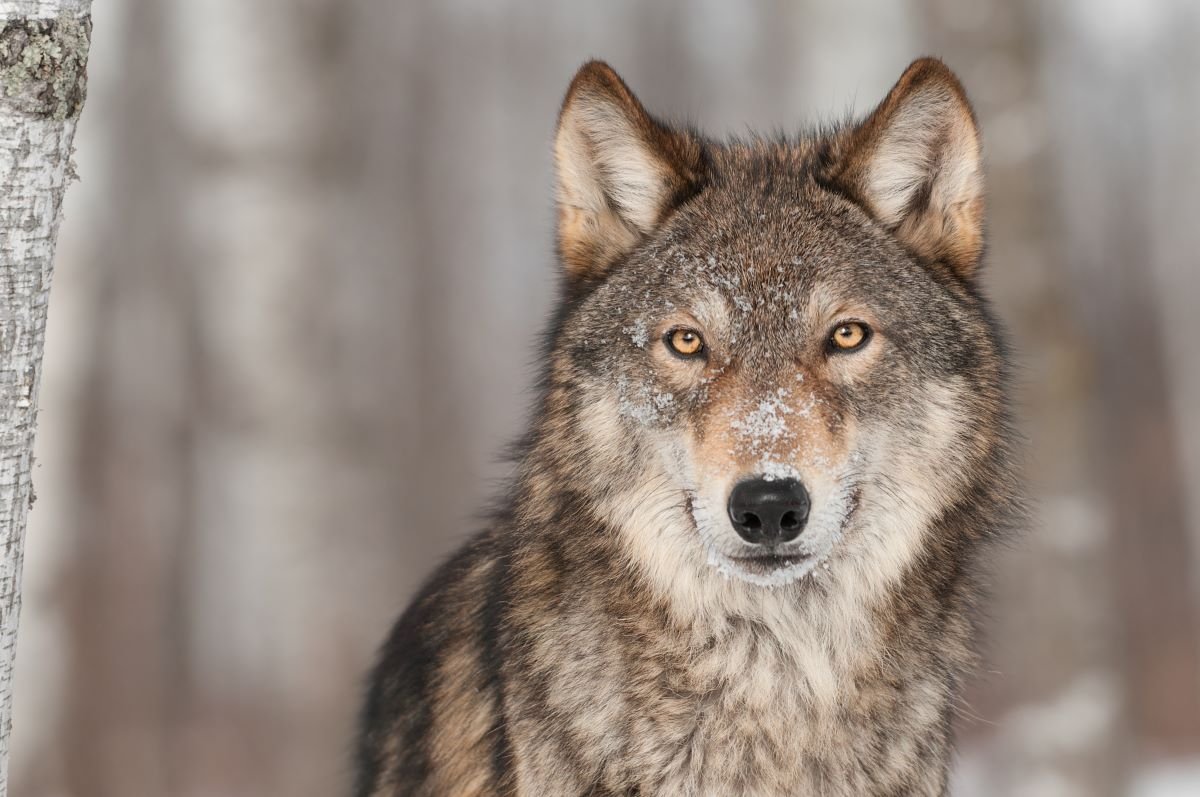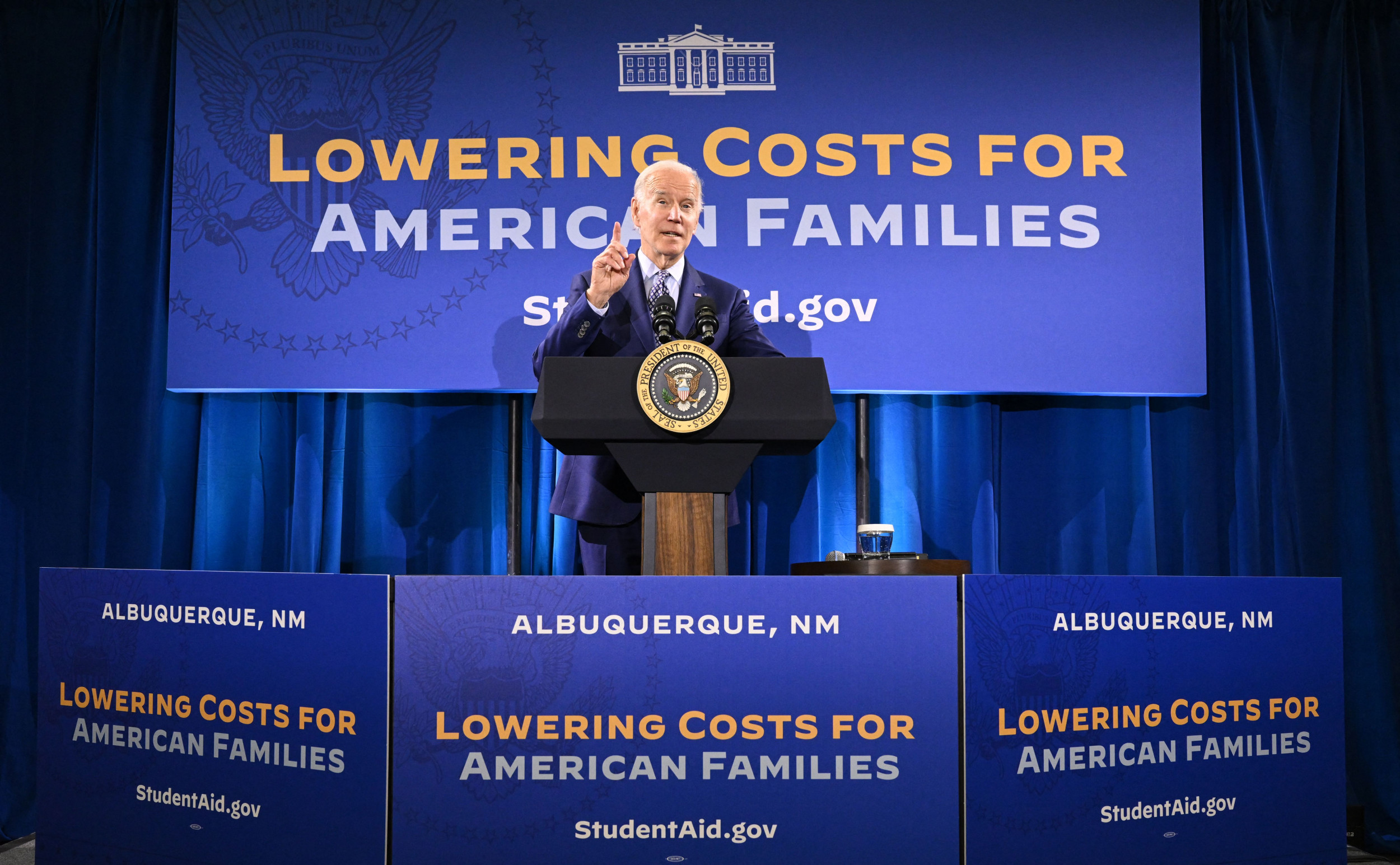A $100,000 reward is on offer for anyone with information leading to the arrest and conviction of those responsible for the shooting of a gray wolf in Colorado this past August.
The male wolf, known as 2309-OR or "Shadow," was the father of the Copper Creek pack. A necropsy of the wolf, the results of which were made public on Thursday, revealed that he died from a gunshot wound in Grand County. Conservation groups and individual donors significantly increased the reward amount over the weekend in hopes of bringing the perpetrator to justice.
Newsweek contacted the U.S. Fish and Wildlife Service via the agency's website for further comment.

Why This Matters
Shadow's death marks a significant blow to Colorado's fledgling wolf restoration efforts, launched following the passage of Proposition 114 in 2020. He was the father of the first gray wolf pack reintroduced to the state, and his loss jeopardizes the success of the initiative.
Weakened wolf packs are more likely to resort to preying on livestock, likely escalating tensions between those who are against the program and conservationists, the Center for Biological Diversity said in a statement on Wednesday.
What To Know
Shadow was fatally wounded by a gunshot, as confirmed by a necropsy conducted by the U.S. Fish and Wildlife Service.
Before his death, the wolf had fathered five pups in the Copper Creek pack. His death may push the pack further into conflict with livestock owners as they struggle to bring down wild animals such as elk and deer.
Of the total reward, $85,000 will be paid for an arrest, with the remainder contingent on a conviction.
Contributions came from multiple conservation organizations and individuals, including Colorado Wild, Defenders of Wildlife and WildEarth Guardians.
BREAKING: This reward has soared to over $100K. Please share this news far and wide — someone out there knows something.
Wolf 2309 (Shadow) was a hero. Against all odds, he and his mate, 2312, created a family. We are committed to his legacy.
More info: https://t.co/hyxXvZDQLG https://t.co/UzAWL379b0
What People Are Saying
Alli Henderson, southern Rockies director at the Center for Biological Diversity, said in a statement: "Every Coloradan should be outraged that a selfish poacher gunned down one of our state's first reintroduced gray wolves, the father of the historic Copper Creek pack."
Michael Saul, program director of Defenders of Wildlife Rockies and Plains, also said in the statement: "This loathsome news underscores the need for the Colorado Parks and Wildlife Commission to stay the course and not let the bad-faith efforts of anti-wolf extremists distract from carrying out its balanced and thoughtful restoration plan, while this cash reward exemplifies the number of groups committed to working with all Coloradans to ensure a successful wolf reintroduction program."
Courtney Vail, board chair of the Rocky Mountain Wolf Project, also said: "Not only have the perpetrators wasted taxpayer funds meant for ranchers to adapt to wolves, they also inflamed the conflict, fueling online threats that perpetuate the culture war.
"This ugliness represents the worst of us and distracts from the success stories of livestock producers on the ground in Colorado who have prepared for wolves, implemented nonlethal conflict reduction tools, and experienced no livestock losses this past season."
What Happens Next
The U.S. Fish and Wildlife Service encourages anyone with information to come forward. Members of the public can contact the service's wildlife crime hotline at 1-844-FWS-TIPS (397-8477), FWS_TIPS@fws.gov or https://www.fws.gov/wildlife-crime-tips.
This week, the Colorado Parks and Wildlife Commission will hold meetings to discuss potential changes to the wolf reintroduction program. A petition circulating among stakeholders calls for a pause in further introductions until conflict mitigation measures are better defined.
Discussions on the petition will be streamed live on the commission's YouTube channel Wednesday starting at 1 p.m. Mountain Time, a commission spokesperson told Newsweek.
Colorado's wolf reintroduction program aims to release 10 to 15 wolves annually for the next three to five years.
Do you have a tip on a science story that Newsweek should be covering? Do you have a question about gray wolves? Let us know via science@newsweek.com.




















 English (US) ·
English (US) ·